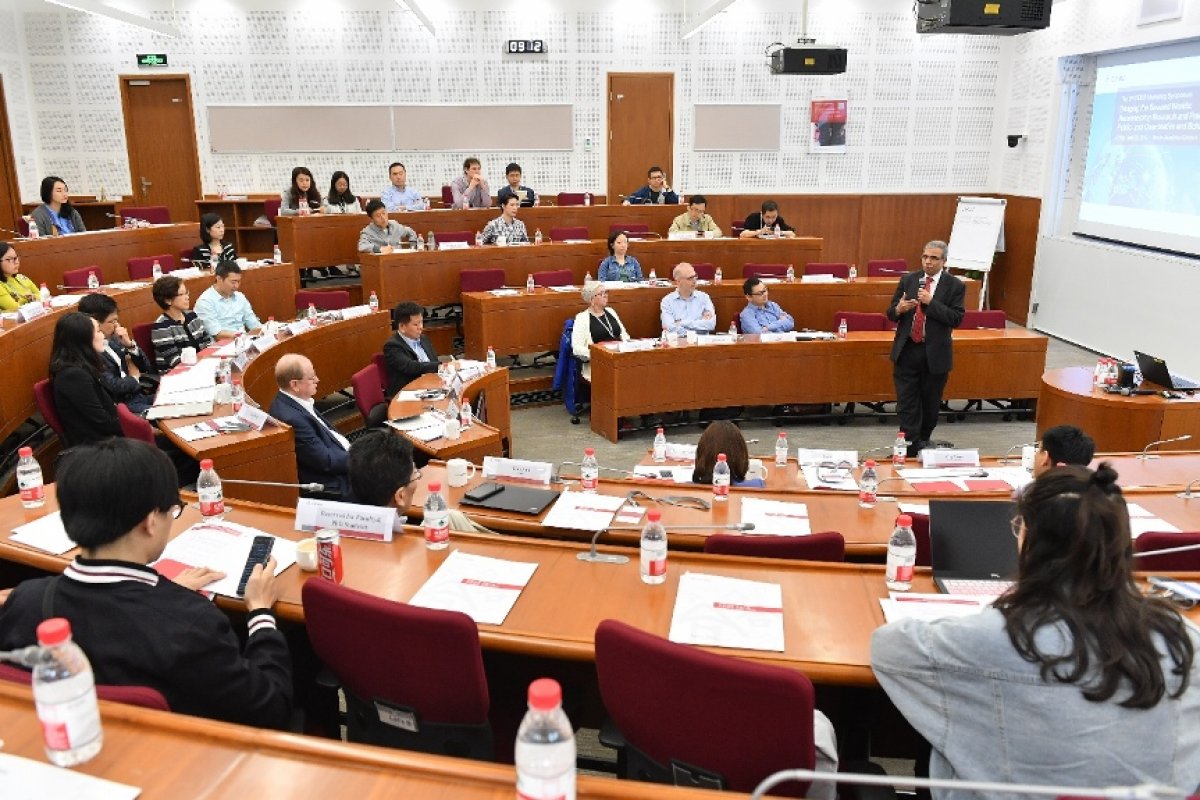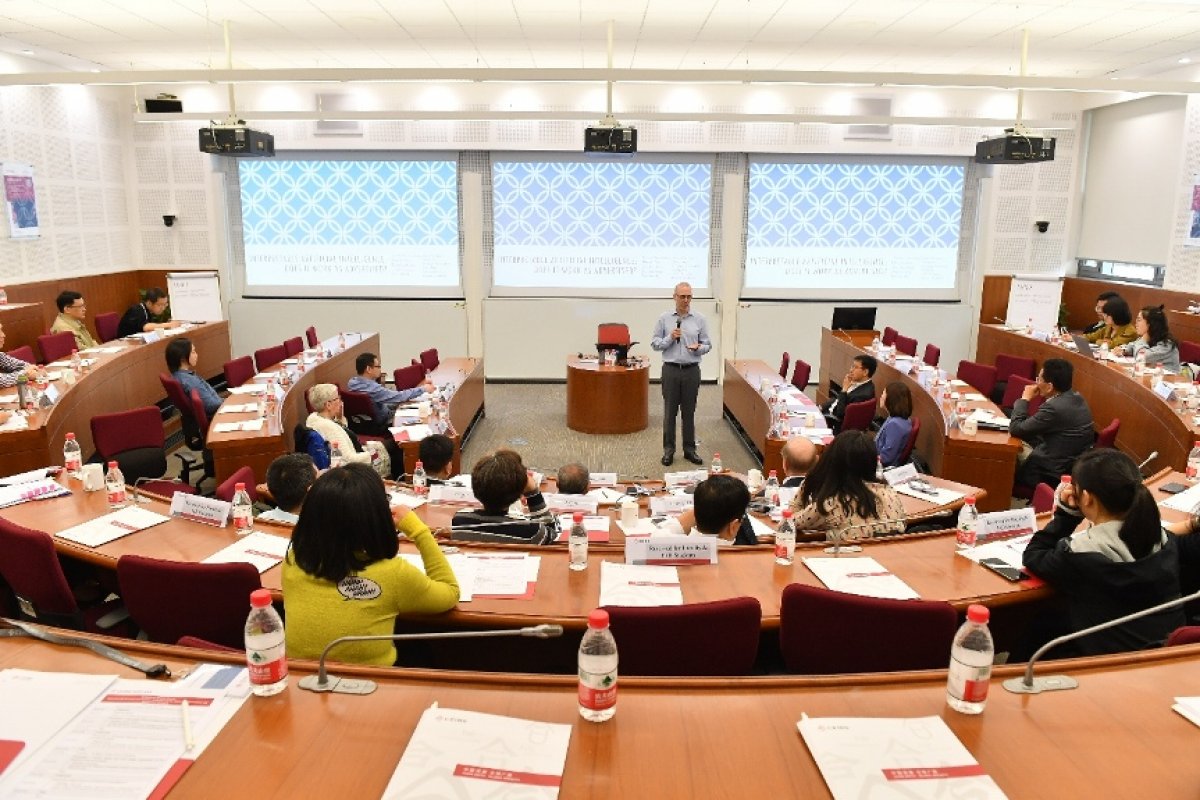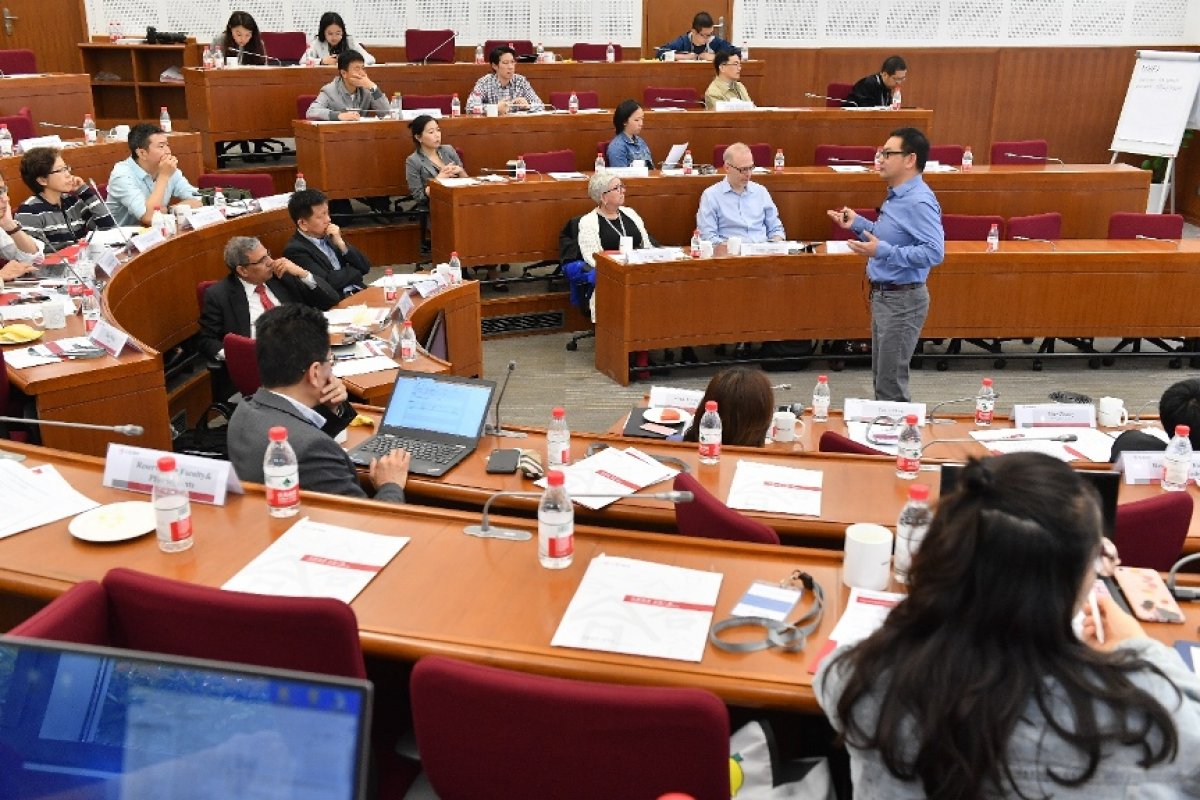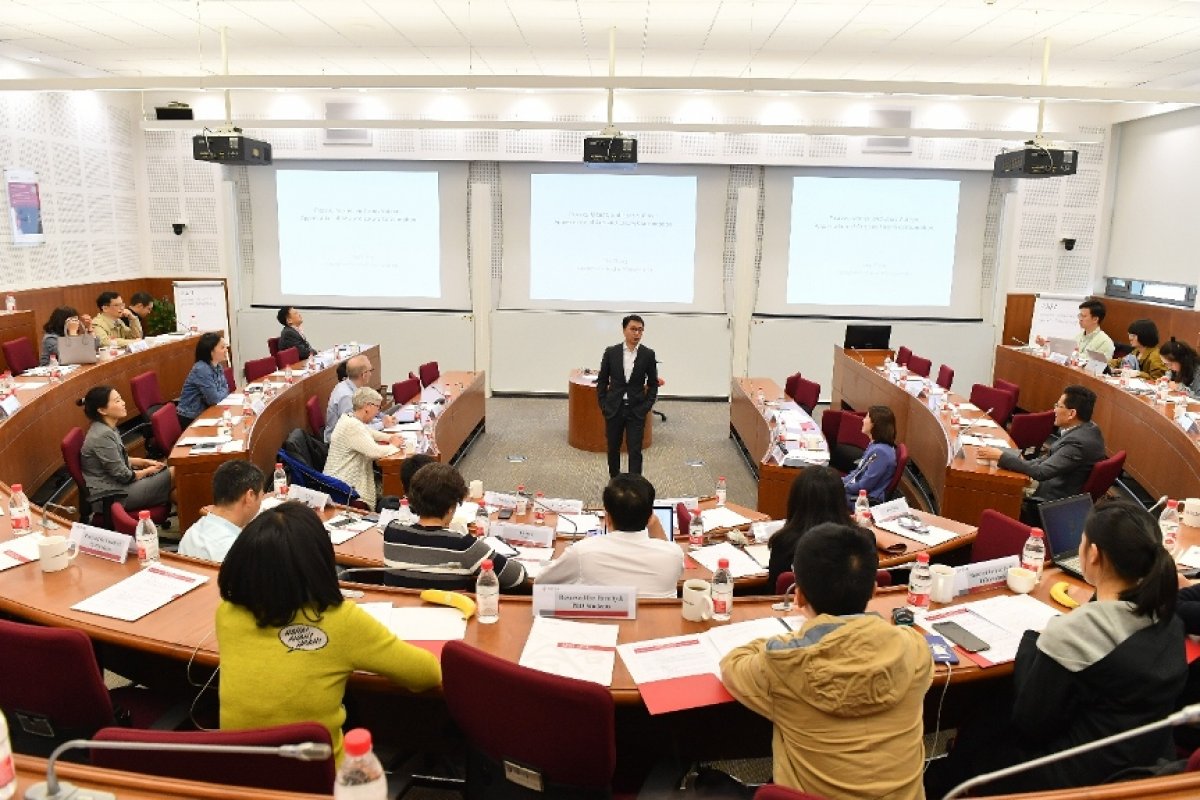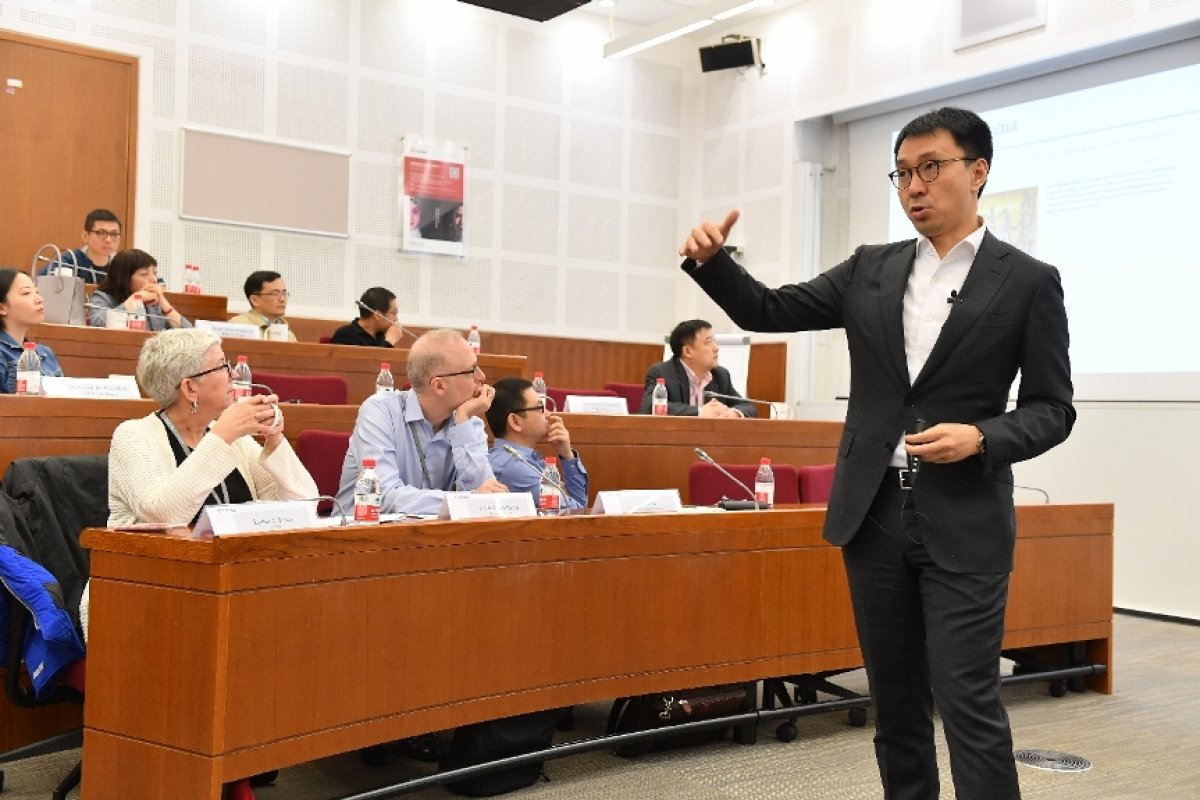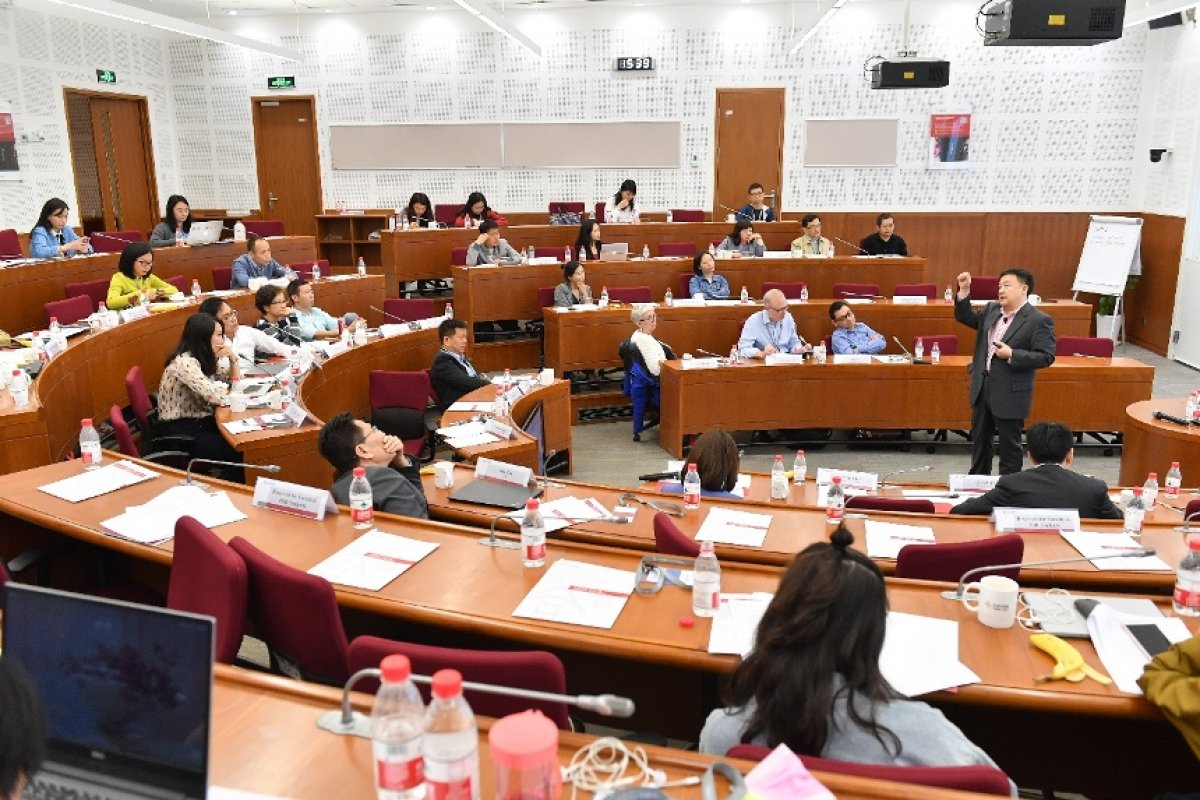3rd CEIBS Marketing Symposium Held
April 26, 2019. Shanghai – The 3rd CEIBS Marketing Symposium was hosted at CEIBS Shanghai Campus today, bringing together around 60 scholars from the US and Asia to present research on the theme of Bridging the Severed Worlds: Reconnecting Research and Practice, Academia and Public, Quantitative, and Behavioural Research.
Organised by CEIBS’ Department of Marketing, the symposium aims to build a platform through which marketing scholars from around the globe can share their latest research findings and exchange ideas. It also provides an opportunity to showcase CEIBS to the academic community worldwide. Four speakers from renowned business schools in the US and Asia presented during the event.
As CEIBS President (European) and Professor Dipak Jain explained in his welcome address, the full-day symposium is the latest in a series of seminars and symposiums hosted by the school’s five academic departments.
The day-long symposium included four one-hour keynote speeches each followed by a twenty-minute Q&A session.
The following are excerpts from keynote speeches given during the symposium:
- Interpretable Artificial Intelligence: Does it Work as Advertised?
Presenter: Daniel Goldstein, Principal Researcher and Assistant Managing Director at Microsoft Research in New York City
Important decisions that used to be made by humans are now being made by AI systems. Concerns about vital decisions emanating from black boxes has led to a renewed interest in interpretable AI systems, those that expose the grounds on which they are deciding. In the first half of this talk, I present and test the predictive accuracy of a simple method for creating interpretable decision making rules. In the second part, I present the results of a battery of studies aimed at determining whether interpretable models achieve their intended effects on human users. In particular, we test the degree to which people can anticipate the results of interpretable models, trust their predictions, and spot their mistakes.
- Asymmetric Information and Entrepreneurial Disincentive in Crowdfunding Market
Presenter: Jian Ni, Associate Professor of Marketing (Joint Faculty Appointment in Department of Economics), Carey Business School, Johns Hopkins University
Technology has enabled consumers and firms to interact before new product launches in a way marketers had only dreamed of in the pre-internet age. Product developers nowadays are able to gauge the demand before putting efforts into product launch, for example, through crowdfunding platforms. Such crowdfunding platforms create new interfaces between sellers and consumer before product launch, while providing entrepreneurs with opportunities to raise funds for their creative ideas. However, the information asymmetry and the ex-ante uncertainty about demand responses could generate disincentives on the fundraiser side and lead to higher chances of fraud. Fundraiser fraud not only hurts consumers, but also affects crowdfunding platforms' long-term growth. Understanding the cause of fraudulent behaviour and its dynamic impact on fundraisers and platforms is important for effective management of idea generation and realisation.
- Picasso, Monet, and Louis Vuitton: Appreciation of Arts Dampens Luxury Consumption
Presenter: Ying Zhang, Associate Dean and Professor of Marketing, Guanghua School of Management, Peking University
From the Square One Shopping Center in Mississauga, Canada, offering Art Auctions, to the Galerie des Galeries, in the famous Galeries Lafayette Haussmann, hosting year-long exhibitions of artwork by various visual artists, art has taken up residence in high end retail spaces around the world in recent years. The obvious hope is that art can function as a magnet to attract customers and to offer a unique competitive edge over rival shopping destinations. However, we have found that these well-intentioned efforts may have some troubling negative consequences: Appreciating visual arts, ironically, decreases consumers’ desire for luxury consumption. This unexpected drop occurs because appreciating artwork elicits the feeling of self-transcendence, which reduces the status motivation that underlies the consumption of luxury goods. A series of field experiments demonstrated this effect and offered a possible solution for this paradox.
- Mobile Payment and Mobile Purchase Behaviour
Presenter: Yuxin Chen, Senior Editor, Marketing Science; Dean of Business, Distinguished Global Network Professor, NYU Shanghai; Global Network Professor, Stern School of Business, New York University
The advent of the digitised economy has changed the payment landscape. Incorporating new bio-mapping technologies such as fingerprint scanning, third-party mobile payments (e.g., Google pay, WeChat pay, and Kakao pay) are gathering strong customer bases. These newly emerging mobile payment services, from the users’ standpoint, bring about a substantial shift in their mobile transaction experience as they require fewer tasks to be completed in comparison to the incumbent payment options such as credit card. Drawing from the transaction cost theory and the literature on consumer psychology, this paper delineates and empirically analyses the behavioural consequences of the third-party mobile payments under the setting where the customers purchase books in offline stores using their mobile phones.






